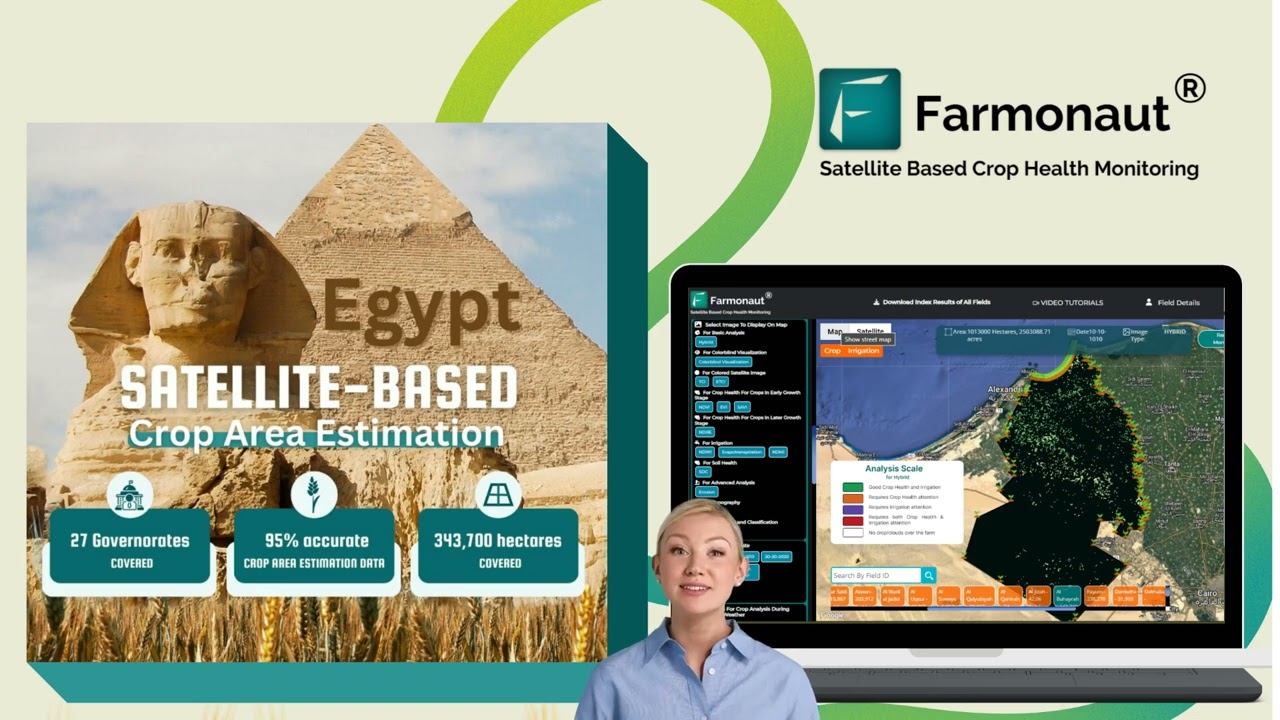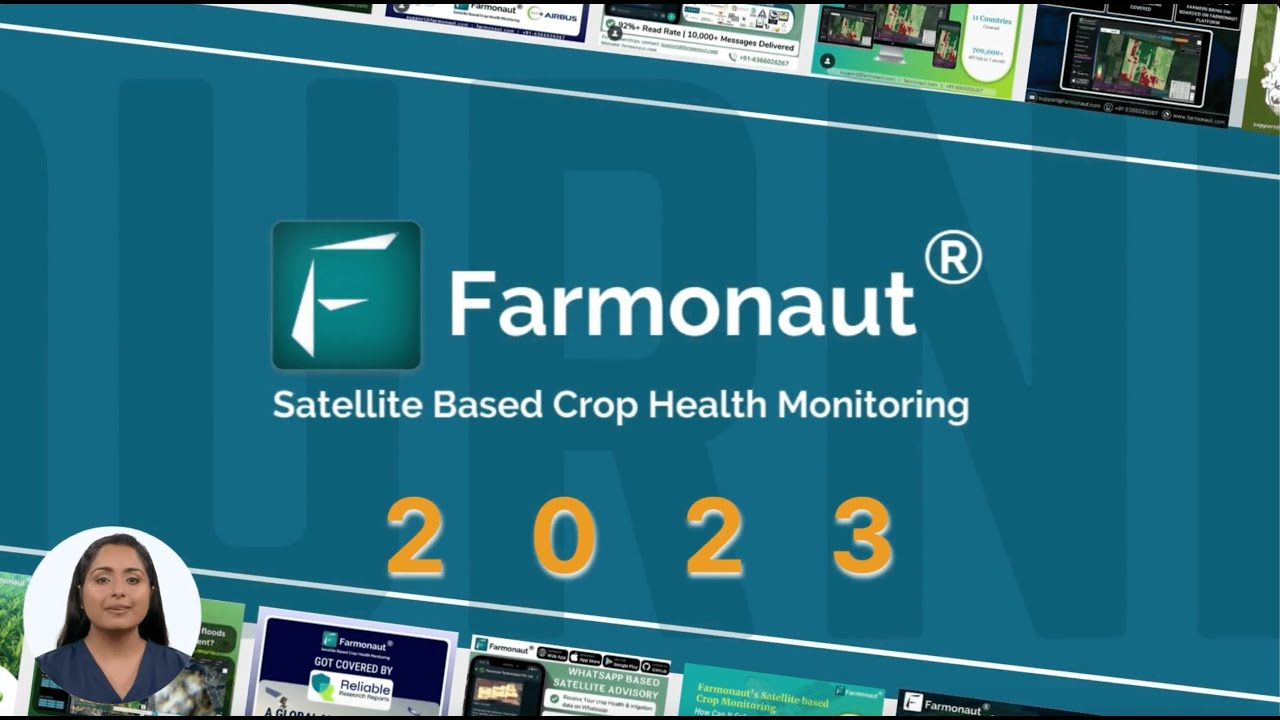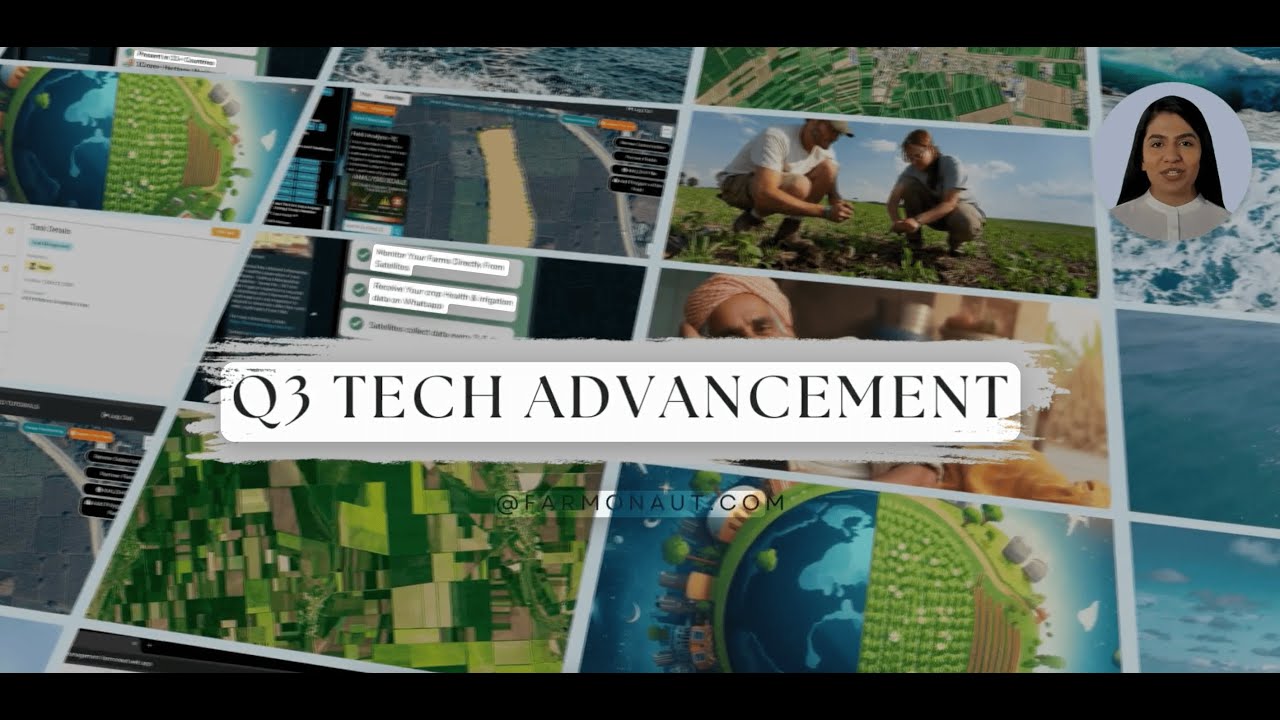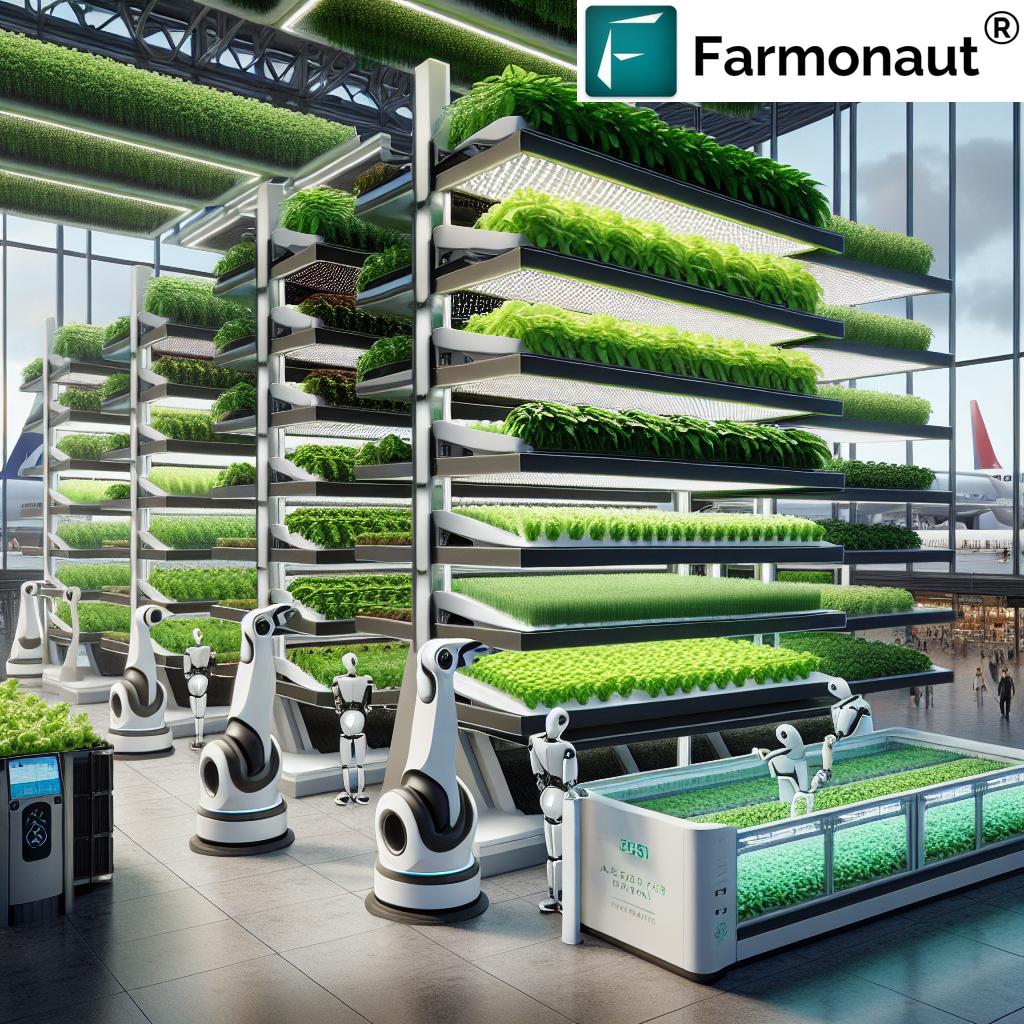Revolutionizing Rural Queensland: How Satellite Farming and AgTech Are Transforming Agricultural Education in 2024

“Rural Queensland saw a 15% increase in university enrollments for agricultural technology programs in 2024.”
In 2024, we are witnessing a remarkable transformation in rural Queensland’s agricultural landscape. The convergence of satellite farming techniques, agritech solutions, and innovative rural education initiatives is reshaping the future of farming and agricultural education in this vibrant region. As we delve into this exciting revolution, we’ll explore how these advancements are not only boosting productivity but also fostering a new generation of tech-savvy farmers and agricultural professionals.
The Rise of AgTech in Rural Queensland
Rural Queensland has always been the heartland of Australian agriculture, known for its vast cattle stations, sheep farms, and diverse cropping enterprises. However, the introduction of cutting-edge agricultural technology solutions has sparked a revolution in how farming is conducted and taught in these remote areas.
- Precision agriculture for rural communities
- Smart agriculture technologies
- Satellite-based farm management
These innovations are not just changing farming practices; they’re transforming the entire educational landscape. Universities and learning centres across Queensland are adapting their curricula to include these new technologies, preparing students for the future of agriculture.
Farmonaut: Pioneering AgTech Solutions
At the forefront of this agricultural revolution is Farmonaut, a company that’s making waves with its innovative approach to precision agriculture. Farmonaut’s platform integrates satellite imagery, artificial intelligence, and machine learning to provide farmers with real-time insights into their crops and land.
Key Features of Farmonaut’s Technology:
- Satellite-Based Crop Health Monitoring
- Jeevn AI Advisory System
- Blockchain-Based Product Traceability
- Fleet and Resource Management
- Carbon Footprinting
These tools are not only revolutionizing farming practices but are also becoming integral parts of agricultural education programs across rural Queensland.
The Impact on Agricultural Education
The integration of AgTech into rural education has led to a surge in university enrollments among rural residents. Students are now eager to learn about these new technologies and how they can be applied to traditional farming practices.
“Farmonaut’s precision agriculture technologies have been adopted by 30% of remote farming communities in Queensland.”
This statistic highlights the rapid adoption of AgTech in rural areas, creating a demand for educated professionals who can implement and manage these technologies.
Transforming Curricula
Universities across Queensland are revamping their agricultural science and technology courses to include:
- Satellite data interpretation
- AI and machine learning in agriculture
- Blockchain applications in supply chain management
- Precision agriculture techniques
- Sustainable farming practices
These changes are ensuring that graduates are well-equipped to tackle the challenges of modern agriculture and drive innovation in the sector.
Remote Learning: Bridging the Gap
One of the most significant impacts of AgTech on rural education has been the proliferation of remote learning opportunities. Farmers and students in remote areas can now access world-class agricultural education without leaving their properties.
Benefits of Remote Learning for Farmers:
- Flexibility to study while managing farm operations
- Access to expert knowledge from anywhere in Queensland
- Opportunity to implement learned techniques immediately
- Reduced travel costs and time away from the farm
This accessibility has led to a significant increase in the number of farmers pursuing higher education and professional development courses.
Workforce Development and Community Impact
The integration of AgTech into rural education is addressing critical workforce shortages in the agricultural sector. By providing local students with the skills needed to manage modern farms, we’re seeing a reversal of the trend of young people leaving rural areas for city jobs.
Key impacts include:
- Increased retention of skilled workers in rural communities
- Growth in agribusiness innovation and startups
- Enhanced productivity and profitability of local farms
- Strengthened local economies
These developments are not just benefiting individual farmers but are revitalizing entire rural communities across Queensland.
Explore Farmonaut’s API for developers
Sustainable Farming Practices
A key focus of the new agricultural education programs is sustainability. With the help of AgTech solutions like Farmonaut’s carbon footprinting tool, farmers are learning to implement more environmentally friendly practices while maintaining productivity.
Sustainable farming techniques being taught include:
- Precision irrigation
- Targeted use of fertilizers and pesticides
- Crop rotation and diversification
- Soil health management
- Carbon sequestration methods
These practices are ensuring that Queensland’s agricultural industry remains strong and resilient in the face of climate change and other environmental challenges.
The Role of Government and Industry Partnerships
The Queensland government has played a crucial role in supporting this educational revolution. Through initiatives like the Rural Education Initiative and various bursary programs, they’re making it easier for rural students to access higher education in agricultural technology.
Industry partnerships are also vital. Companies like Farmonaut are collaborating with universities to provide:
- Guest lectures from industry experts
- Internship opportunities
- Access to cutting-edge technology for research
- Real-world case studies for students to analyze
These partnerships ensure that the education provided is relevant and aligned with industry needs.
Check out Farmonaut’s API Developer Docs
Case Study: Blackall’s Agricultural Learning Centre
The town of Blackall in central western Queensland provides an excellent example of how AgTech is transforming rural education. Once known primarily for its merino sheep and cattle industries, Blackall is now home to a state-of-the-art agricultural learning centre.
This centre offers:
- Hands-on training with the latest AgTech tools
- Courses in drone operation for farm surveying
- Workshops on interpreting satellite data for crop management
- Programs on sustainable land management
The centre has become a hub for agricultural innovation, attracting students from across Queensland and boosting the local economy.

The Future of Agricultural Education in Queensland
As we look to the future, the integration of AgTech into rural education is set to accelerate. We anticipate seeing:
- More specialized degree programs in agricultural technology
- Increased use of virtual and augmented reality in farm management training
- Greater emphasis on data analytics and AI in agricultural decision-making
- Expansion of remote learning options for continuous professional development
These developments will ensure that Queensland remains at the forefront of agricultural innovation and education.
Challenges and Opportunities
While the integration of AgTech into rural education presents numerous opportunities, it also comes with challenges:
- Ensuring reliable internet connectivity in remote areas
- Keeping pace with rapidly evolving technologies
- Balancing traditional farming knowledge with new tech-driven approaches
- Addressing the initial cost of implementing AgTech solutions
However, these challenges also present opportunities for innovation and growth in the sector.
The Role of Farmonaut in Agricultural Education
Farmonaut’s technologies are playing a crucial role in shaping the future of agricultural education in Queensland. By providing access to advanced satellite farming techniques and AI-driven insights, Farmonaut is helping to bridge the gap between traditional farming knowledge and cutting-edge technology.
Key educational contributions include:
- Providing real-world data for case studies
- Offering practical experience with satellite-based farm management
- Demonstrating the impact of precision agriculture on crop yields
- Showcasing the potential of blockchain in agricultural supply chains
Impact on Different Agricultural Sectors
The revolution in agricultural education is having a profound impact across various sectors of Queensland’s agricultural industry:
Livestock Farming
Students are learning how to use satellite technology and AI to monitor grazing patterns, optimize stocking rates, and improve animal welfare. This is particularly beneficial for the state’s extensive cattle and sheep industries.
Crop Production
Precision agriculture techniques taught in universities are helping to maximize yields while minimizing resource use in Queensland’s diverse cropping sector, from cotton to sugarcane.
Horticulture
AgTech education is revolutionizing fruit and vegetable production, with students learning how to use sensors and data analytics to optimize growing conditions and reduce waste.
Dairy Farming
The dairy industry is benefiting from education in smart farming technologies that improve milk production efficiency and animal health monitoring.
The Economic Impact
The transformation of agricultural education in rural Queensland is having a significant economic impact:
- Increased productivity leading to higher farm incomes
- Growth in agribusiness startups and innovation hubs
- Attraction of investment in rural areas
- Development of new export markets for high-tech agricultural products
- Job creation in AgTech and related industries
This economic growth is helping to revitalize rural communities and create new opportunities for young people in agriculture.
Environmental Stewardship Through Education
A key focus of the new agricultural education programs is environmental stewardship. Students are learning how to use AgTech to:
- Reduce water usage through precision irrigation
- Minimize chemical inputs with targeted application
- Improve soil health through data-driven management
- Monitor and reduce carbon emissions from farming activities
This focus on sustainability is ensuring that Queensland’s agricultural industry can thrive while protecting the environment for future generations.
The Global Context
Queensland’s revolution in agricultural education is part of a global trend towards smarter, more sustainable farming. By embracing AgTech and satellite farming techniques, Queensland is positioning itself as a leader in agricultural innovation on the world stage.
This leadership is creating opportunities for:
- International collaborations in agricultural research
- Export of agricultural knowledge and technology
- Attraction of international students to Queensland’s agricultural programs
- Participation in global initiatives for sustainable agriculture
Conclusion: A Bright Future for Rural Queensland
The integration of satellite farming, AgTech, and innovative educational initiatives is transforming rural Queensland’s agricultural landscape. By providing access to cutting-edge technologies and knowledge, we are empowering the next generation of farmers and agricultural professionals to meet the challenges of the 21st century.
As we look to the future, the continued evolution of agricultural education in Queensland promises to bring:
- Increased productivity and sustainability in farming
- Revitalization of rural communities
- New opportunities for innovation and entrepreneurship
- A stronger, more resilient agricultural sector
The revolution in rural Queensland’s agricultural education is not just about adopting new technologies; it’s about creating a sustainable, prosperous future for the state’s agricultural communities. As we continue to embrace these changes, we’re excited to see how they will shape the future of farming in Queensland and beyond.
Rural Queensland Agricultural Education Transformation 2024
| Metric | Pre-AgTech Era | 2024 with Satellite Farming & AgTech |
|---|---|---|
| Rural university enrollment numbers | 5,000 | 7,500 |
| Farmers using precision agriculture technologies (%) | 10% | 45% |
| Average crop yield increase (%) | Baseline | 20% |
| Number of agritech startups in rural areas | 15 | 75 |
| Remote learning participation among farmers | 500 | 3,000 |
| Agricultural workforce skill level (scale 1-10) | 6 | 8 |
| Sustainable farming practices adoption rate (%) | 30% | 70% |
| Rural community economic growth (%) | 2% | 5% |
| AgTech investment in rural Queensland (AUD millions) | 50 | 250 |
FAQ Section
Q: How is satellite farming changing agriculture in rural Queensland?
A: Satellite farming is revolutionizing agriculture by providing real-time data on crop health, soil moisture, and weather patterns. This allows farmers to make more informed decisions, optimize resource use, and increase yields while reducing environmental impact.
Q: What role does Farmonaut play in agricultural education?
A: Farmonaut provides advanced satellite-based farm management solutions that are being incorporated into agricultural education programs. Their technologies offer students hands-on experience with precision agriculture, AI-driven insights, and blockchain applications in farming.
Q: How are rural communities benefiting from the AgTech revolution?
A: Rural communities are seeing increased job opportunities, economic growth, and retention of young talent. The integration of AgTech is making farming more attractive and profitable, revitalizing local economies.
Q: What challenges does the integration of AgTech in rural education face?
A: Key challenges include ensuring reliable internet connectivity in remote areas, keeping pace with rapidly evolving technologies, balancing traditional farming knowledge with new tech-driven approaches, and addressing the initial cost of implementing AgTech solutions.
Q: How is the Queensland government supporting this educational transformation?
A: The Queensland government is supporting this transformation through initiatives like the Rural Education Initiative, bursary programs, and partnerships with universities and industry to enhance access to agricultural technology education in rural areas.




















